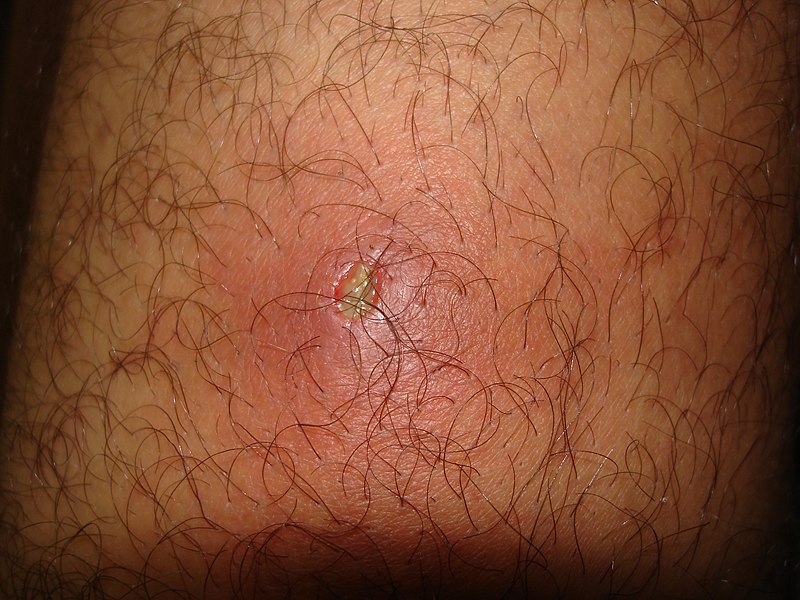
 |
 |

Search
Calendar
| « April 2024 » | ||||||
| Su | Mo | Tu | We | Th | Fr | Sa |
| 1 | 2 | 3 | 4 | 5 | 6 | |
| 7 | 8 | 9 | 10 | 11 | 12 | 13 |
| 14 | 15 | 16 | 17 | 18 | 19 | 20 |
| 21 | 22 | 23 | 24 | 25 | 26 | 27 |
| 28 | 29 | 30 | ||||
Our poll
VISITOR STATUS
Partner Sites
 |
Thursday, 18/04/2024, 1:42:50 PM |
| Logged in as Guest | Group "Guests"Welcome Guest | RSS | |
 | |
| Main | My profile | Registration | Log out | Login | |
Boils Boils
What is a Boil ? A boil is a bacterial infection that begins deep in a hair follicle or a sebaceous gland, one of the skin's oil-producing glands, and gradually works its way up to the surface of the skin. Staphylococcus aureus is the bacteria most frequently responsible for boils. Signs & Symptoms Boils most often appear on the neck, face, underarms, or buttocks. If you notice a red, elevated, and painful bump, watch the area closely. Should a boil be developing a pustule will form in the center of the affected area with in two to four days. It is possible. Although unusual, for a boils to spread beyond the affected area and cause a more serious systemic infection. For example, nearby lymph glands may become swollen. A boil may also be a sign of an underlying infection in the body that is manifesting itself through the skin. In either case, you need medical attention. To determine when to call the doctor, pay attention to your body. Do you feel fine otherwise, or do you have other symptoms of illness? If you are overtired, running a fever, not eating well, or just not "up to par", you should see a physician. General recommendations for boils
Preventive measures of boils
---->Week 2: Take 50 milligrams of pine-bark or grape-seed extract two to three times a day. ---->Week 3: Take 250 to 500 milligrams of burdock root, red clover, and / or nettle two to three times a day. Repeat this cycle three times, for a total of nine weeks. Treatment for Boils Once the boil has localized close to the skin surface, your doctor will probably recommended that it be opened and the contents expressed a procedure known as incision & drainage , or I and D. This is a procedure that should be done by a medical professional . If the doctor incises the boil, or if it ruptures by itself, it will drain thick pus. A topical antibiotic, such as Betadine or bacitracin, may be prescribed to help clear the infection. Your doctor will probably prescribe an oral antibiotic and do a culture of the contents of the boil. When the results of the culture reveal the particular organism responsible for the infection, your antibiotic prescription may be changed accordingly. If the situation recurs, and the culture determines it to be a staphylococcal infection, close contacts of yours may also need to be treated so that you do not pass the infection back and forth.
|



